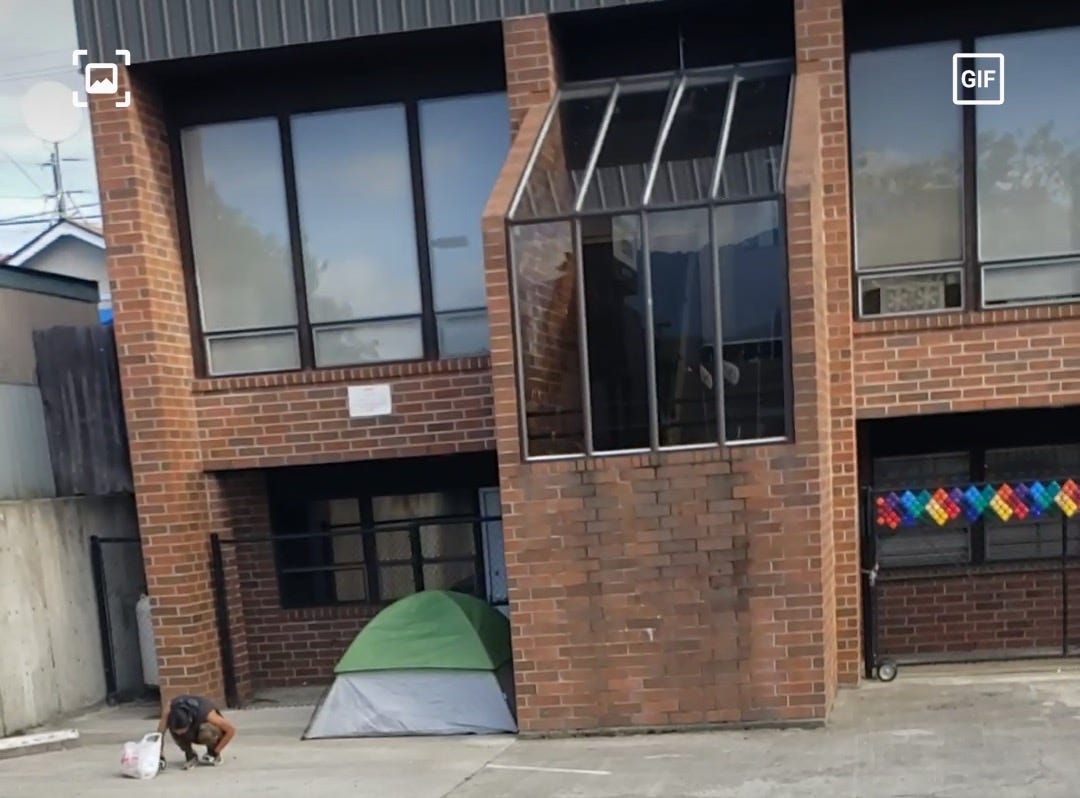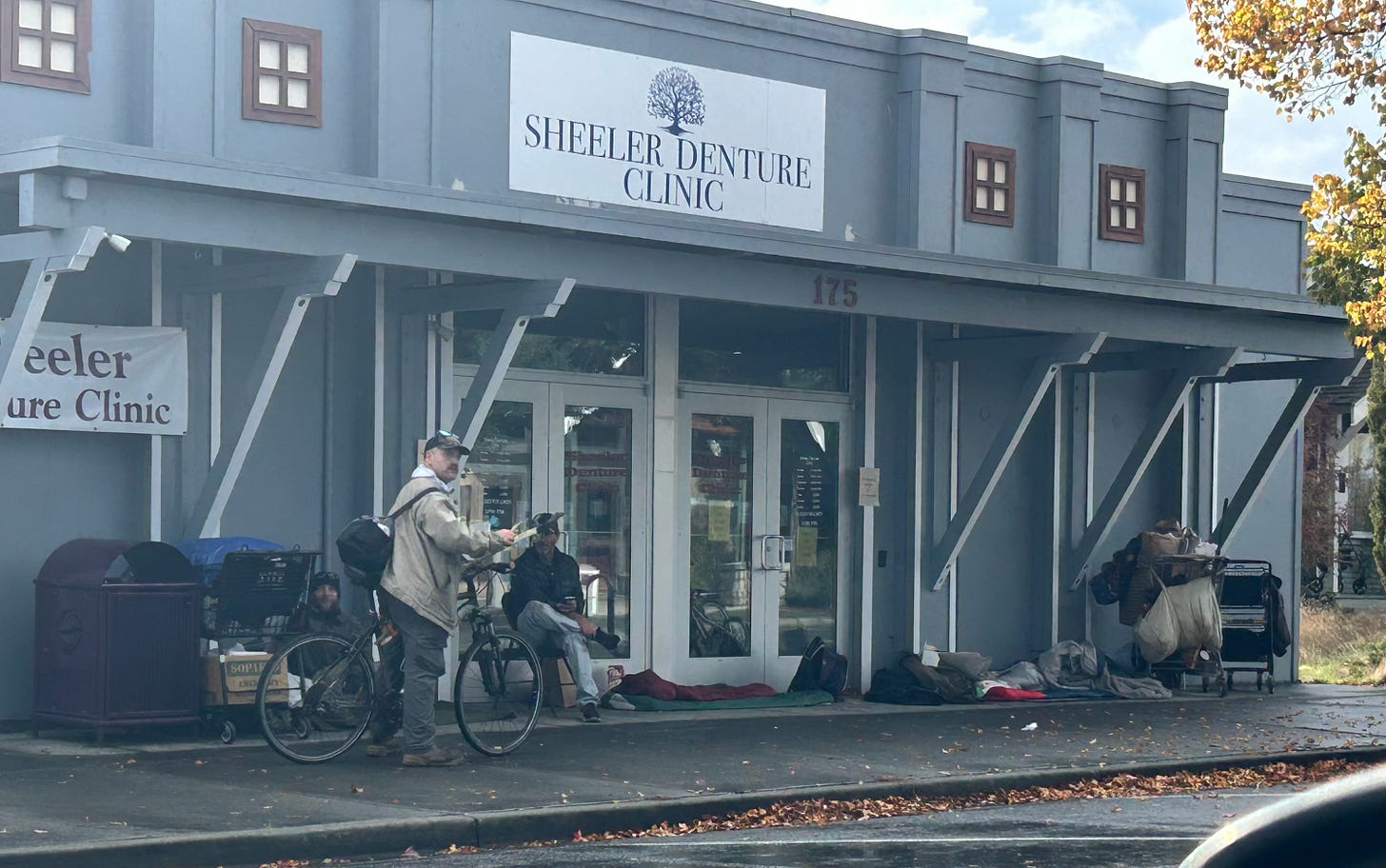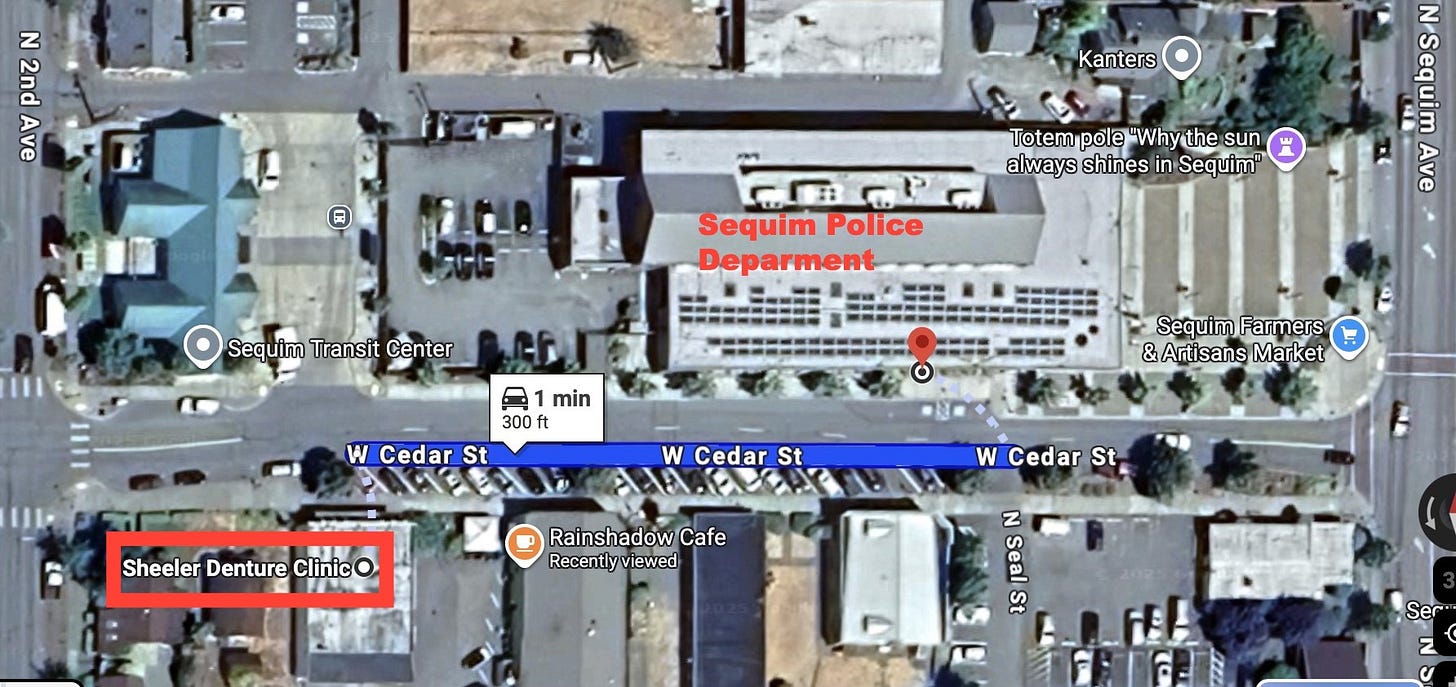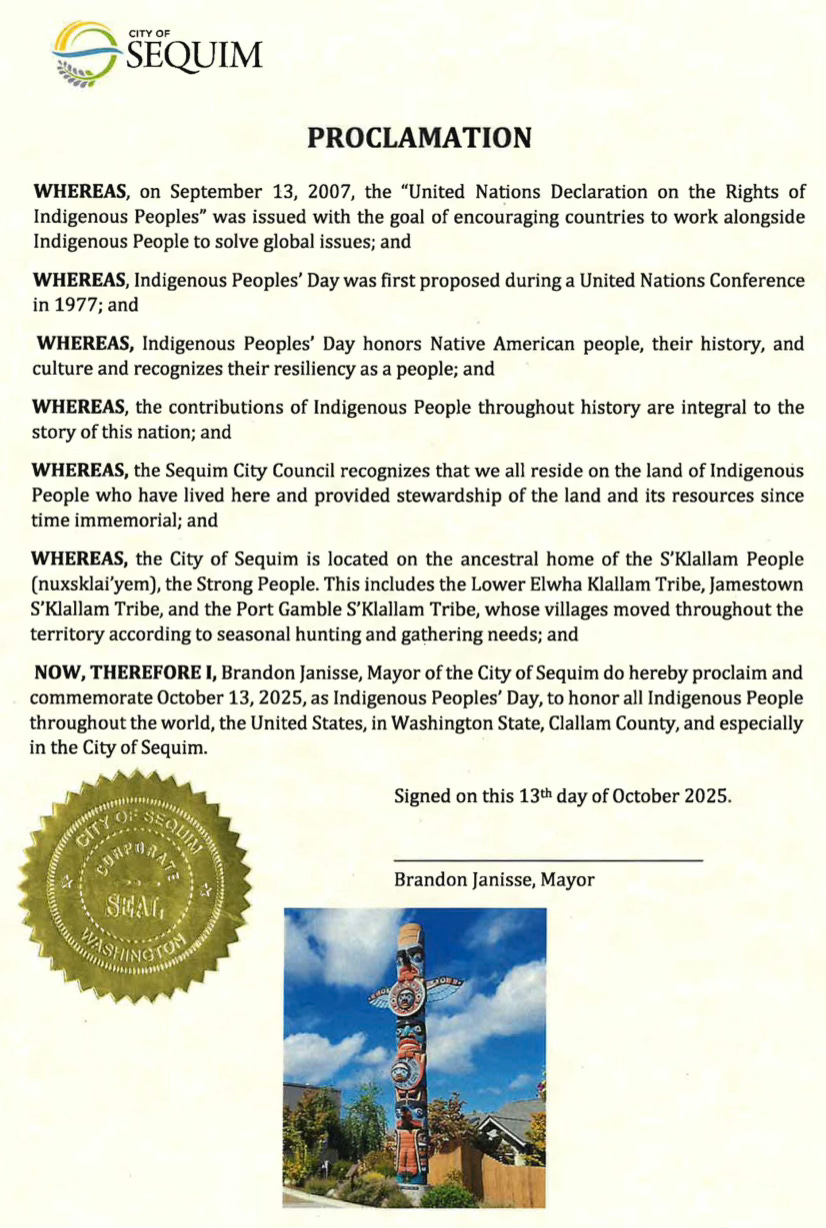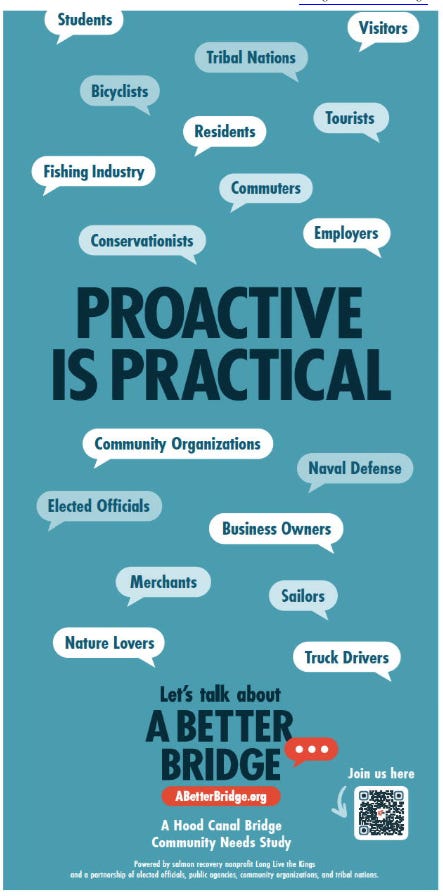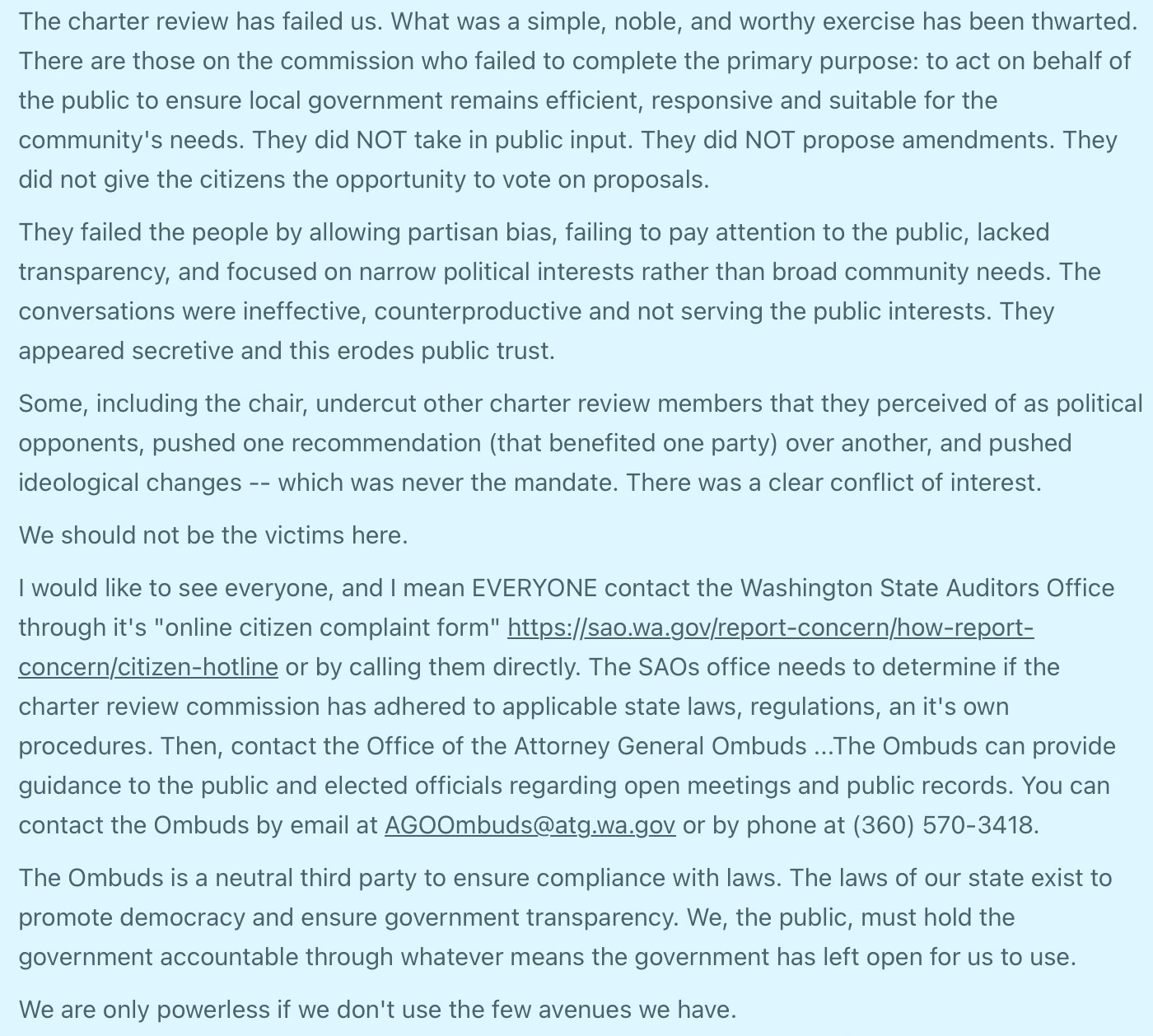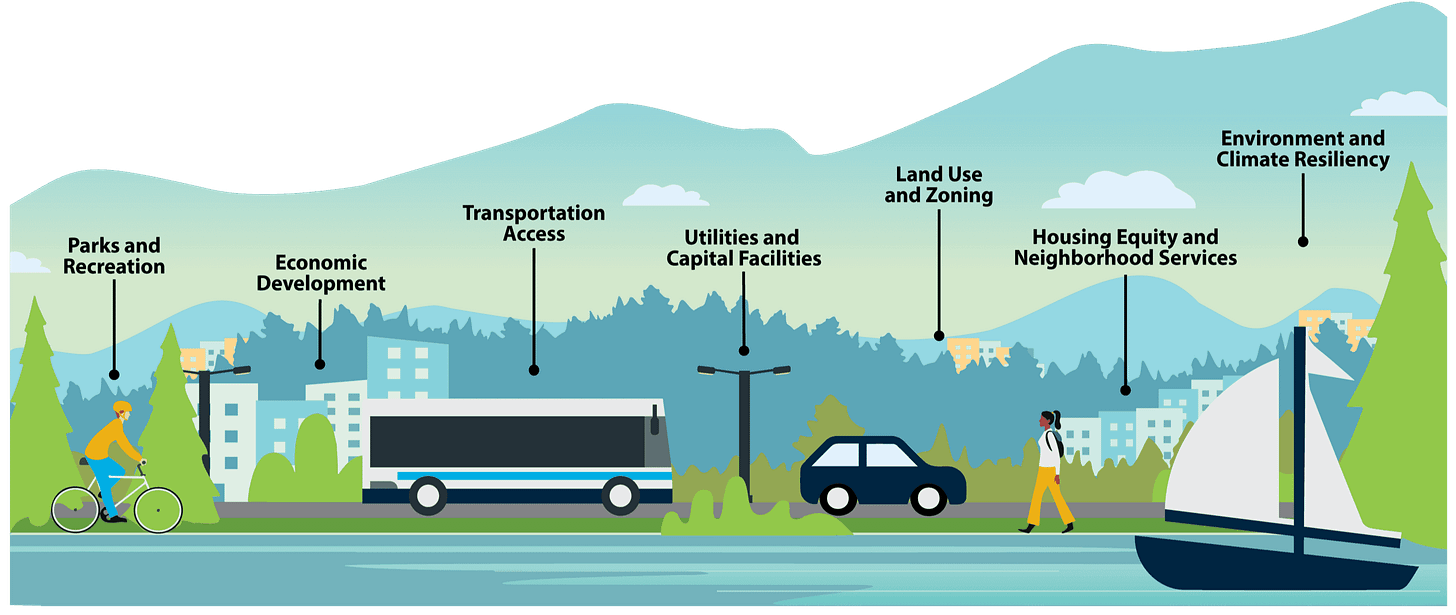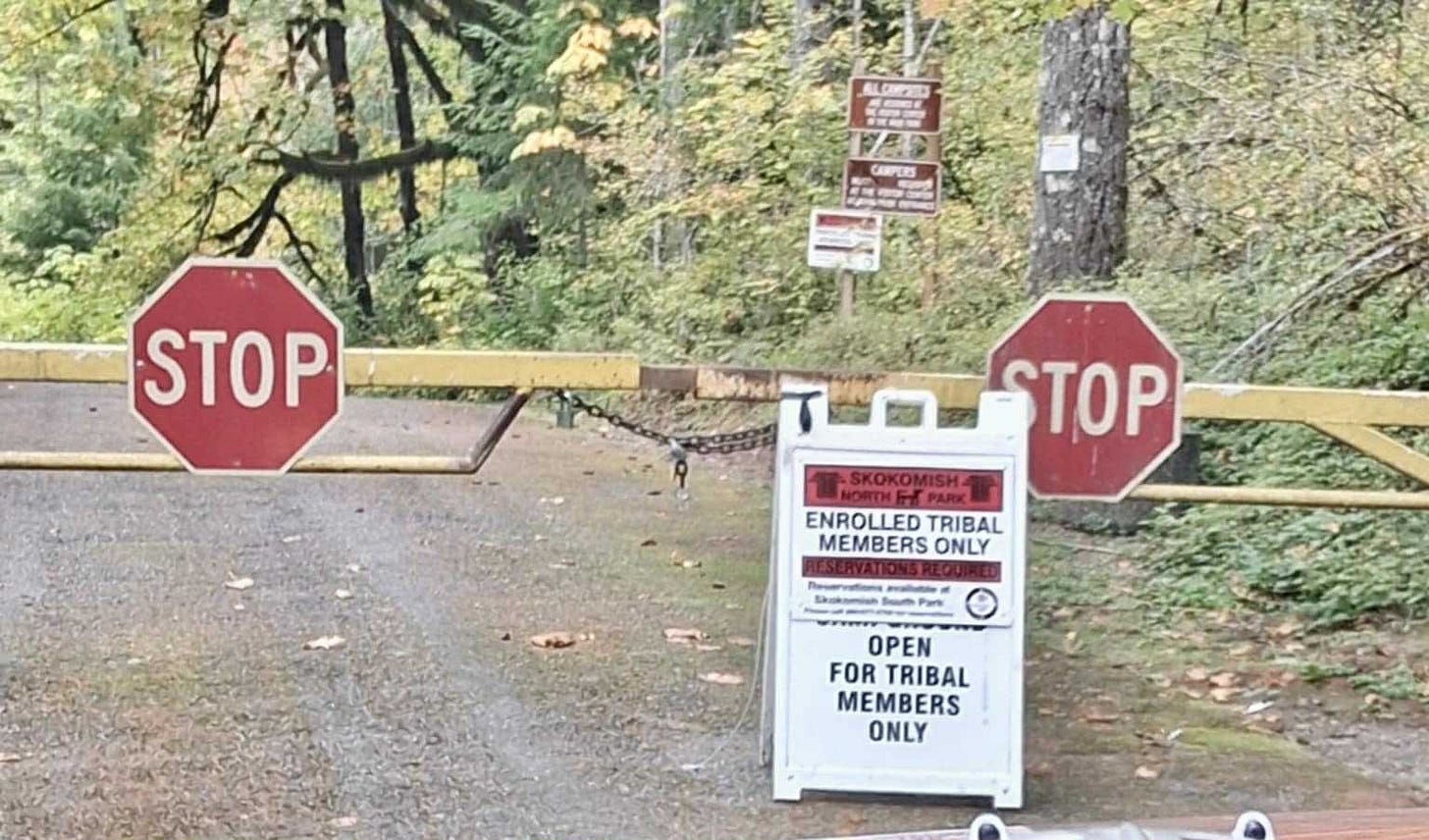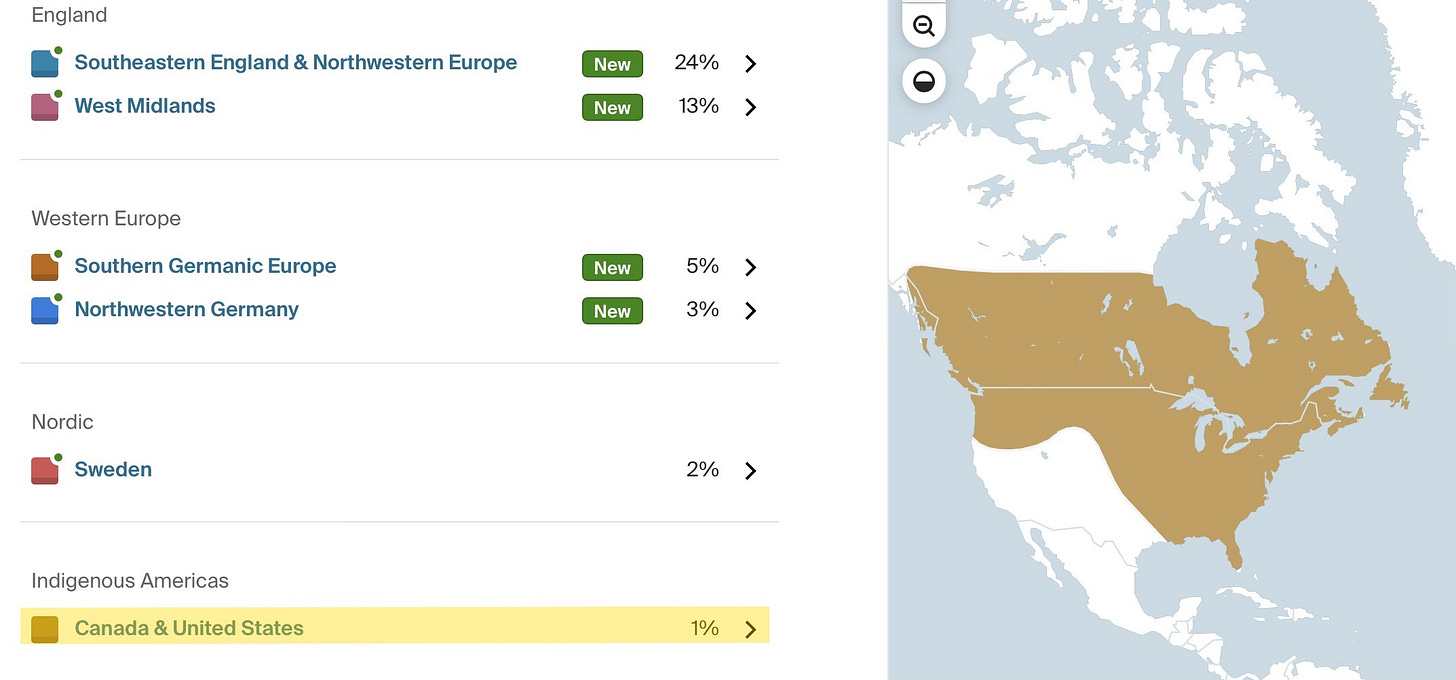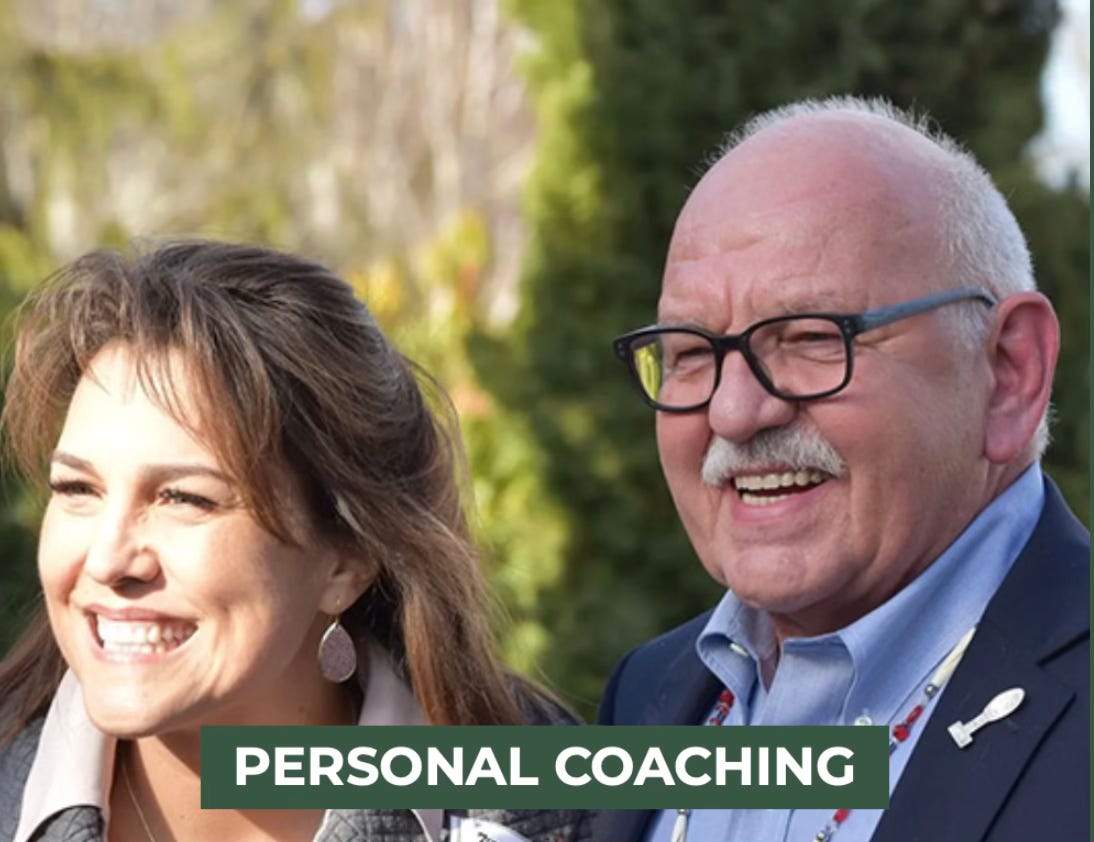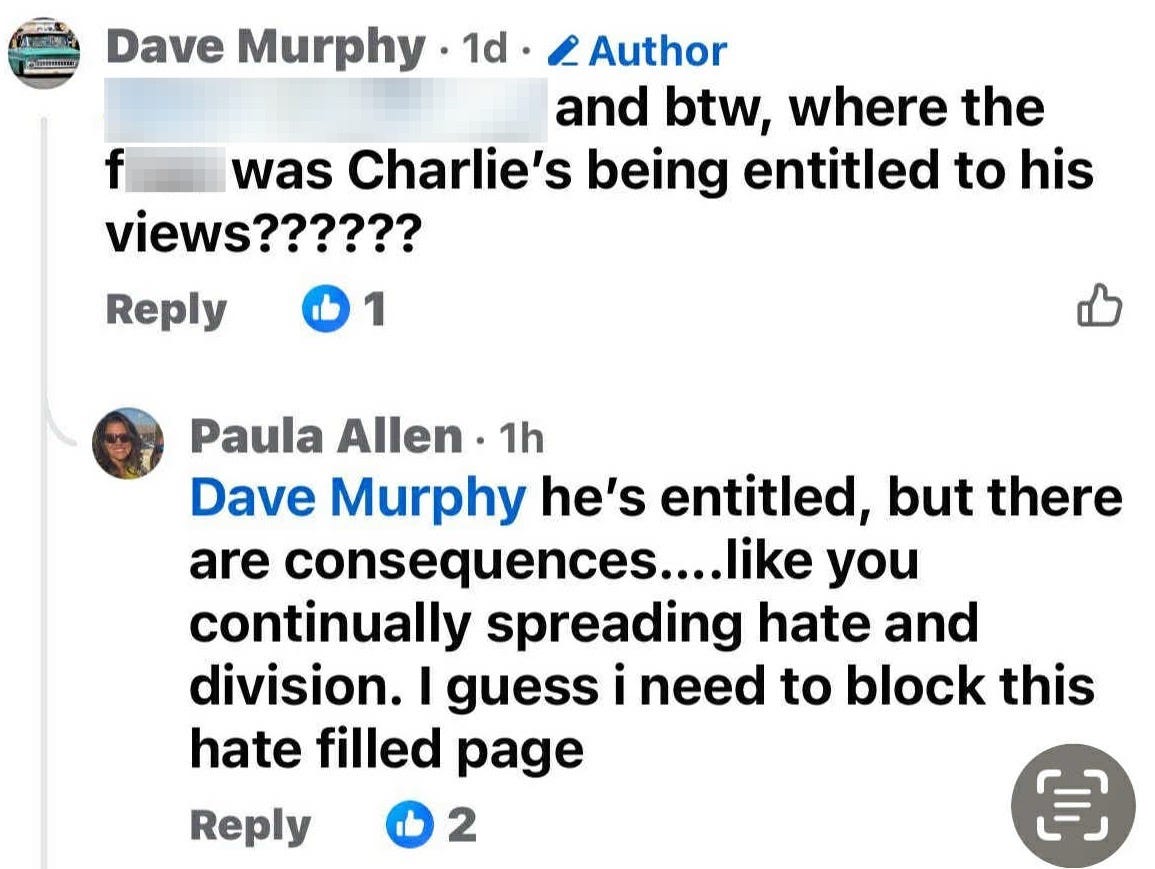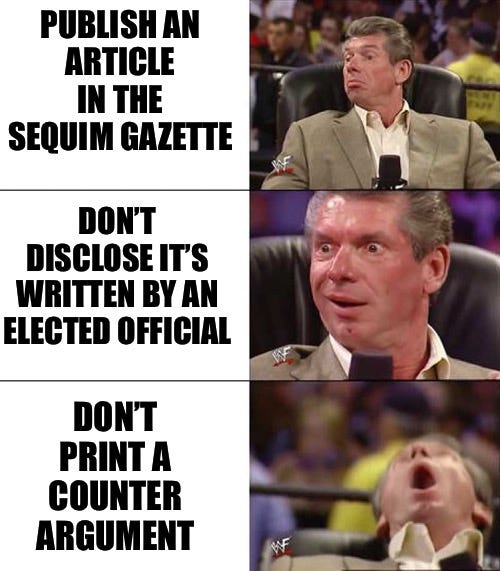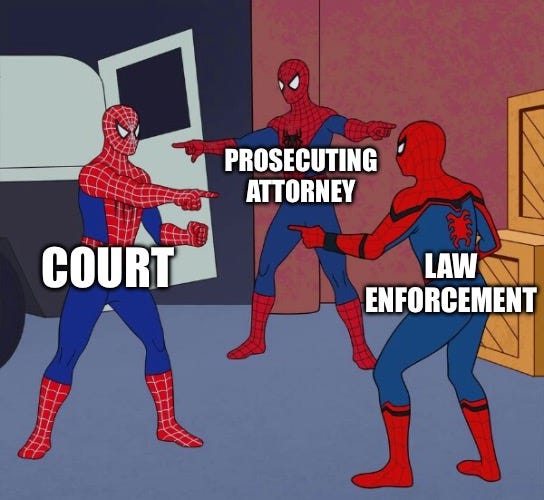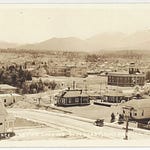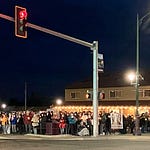Every week brings new headlines that remind us how far the words of our local leaders drift from their actions. Whether it’s the County fencing itself in, the City of Sequim reading proclamations that no one accepts, or Port Angeles ignoring public safety in its long-range plan, the pattern remains the same: appearances over accountability. Here are snippets from around Clallam County and beyond that reflect the widening gap between what’s said—and what’s done.
A Fence for the County, a Mess for Everyone Else
As Clallam County Commissioners finalize next year’s budget, they’re setting aside funds to fence and gate the Health and Human Services building. The move follows growing problems with homeless individuals camping in the parking lot—especially over weekends—leaving county crews to spend hours cleaning up every Monday morning.
Taxpayers will now fund a barrier to protect county property. But what about small businesses that face the same issue without public support? One Sequim denture clinic starts each day by clearing a homeless encampment blocking its front doors—and it’s across the street from the Sequim Police Department and City Hall.
Private business owners bear those costs alone. They absorb the cleanup expenses, pass them on to customers, and watch local prices rise while officials congratulate themselves for “addressing homelessness” with fences around government buildings.
Proclamations Without People
At the latest Sequim City Council meeting, leaders took time to read a proclamation for “Indigenous Peoples’ Day.” It declared that the City “recognizes that we all reside on the land of Indigenous People who have lived here and provided stewardship of the land and its resources since time immemorial.”
No one was present to receive it. The same happened the past two years to the commissioners in the courthouse—an empty ceremony with no one to accept the proclamation. Contrast that with the Clallam County Commissioners’ proclamation for “Diaper Need Awareness Week,” which drew three attendees to accept it in person.
So, who are these proclamations for? If no one shows up and no action follows, proclamations begin to look less like respect and more like political theater—words meant to win approval, not to honor anyone.
A Billion-Dollar Bridge and Selective Representation
The nonprofit Long Live the Kings is seeking input on a proposed project to replace the Hood Canal Bridge to help salmon migration. According to the group, the bridge “delays fish as they pass through, making them more vulnerable to predators like harbor seals.”
They describe the effort as “a partnership of elected officials, public agencies, community organizations, and tribal nations.” That list raises a fair question: if elected officials and public agencies already represent all residents, why are “tribal nations” listed as a separate category?
The Hood Canal is the main artery connecting the Olympic Peninsula to the rest of Washington. Every resident depends on it. When only certain groups are given “special representation,” the rest of us are left to wonder who’s really being represented in a project that affects us all.
Take their survey here.
James Taylor: Asking the Questions City Hall Won’t
When Bonneville Power Administration (BPA) raised wholesale electricity rates by 12%, Port Angeles city staff noted that BPA accounts for roughly half of the city’s utility costs. Personnel costs, they said, were up 2.6%.
So why is the City proposing a 22% hike to the base connection fee and 9.2% to consumption rates? The numbers don’t add up. Even factoring in inflation, those increases exceed cost growth by a wide margin. Meanwhile, the City has saved money replacing gas vehicles with electric ones, cutting maintenance and fuel costs.
Candidate James Taylor called out the inconsistencies in an article and offered solutions: bi-monthly meter readings to reduce labor, paperless billing to save costs, and a demand for data before rate hikes. Incumbent LaTrisha Suggs and her colleagues accepted the staff report without question. Port Angeles deserves leaders willing to sharpen their pencils—not just rubber-stamp higher bills.
The Charter Review: A Broken Promise of Transparency
A recent CC Watchdog reader summed up the Charter Review Commission’s term bluntly:
“The charter review has failed us. What was a simple, noble, and worthy exercise has been thwarted.”
The commenter argued that commissioners “did NOT take in public input,” “did NOT propose amendments,” and “did not give the citizens the opportunity to vote.” The statement accused members—“including the chair”—of allowing partisan bias, ignoring transparency, and advancing ideological changes “never part of the mandate.”
They urged residents to file complaints with the State Auditor’s Office and Attorney General’s Ombuds. “We, the public, must hold the government accountable through whatever means the government has left open for us to use,” the comment concluded. Whether you agree or not, the frustration is unmistakable: a process meant to empower the public has instead deepened distrust.
Marolee Smith Dvorak: Remembering What Policing Used to Mean
City Council candidate Marolee Smith Dvorak recently reflected on her early years in law enforcement programs after reading that Thurston County is recruiting youth police cadets.
She described her own path—from a teenage “Police Explorer” to a “Police Service Assistant” in Berkeley, a hands-on experience that built responsibility and respect for the profession. “Clearly,” she wrote, “these youth programs were a clear career path to law enforcement.”
Today, similar programs in Clallam County are gone. “No wonder our Sheriff is understaffed,” Dvorak observed. “No wonder Port Angeles can’t seem to attract and hire enough dispatchers.” Her message is simple: if we want good officers tomorrow, we must give young people a path to serve today.
A Comprehensive Plan That Misses the Point
Port Angeles is updating its 20-year Comprehensive Plan, covering everything from housing equity to climate resiliency. The draft lists eight “key issues”—but not one mention of public safety.
Residents see open-air drug markets, unregistered sex offenders, derelict RVs, and parks littered with needles. Yet none of that appears in the city’s long-term vision. The omission isn’t just an oversight—it’s a statement of priorities.
If leaders can outline plans for parks, housing, and environmental justice, surely they can include the safety of the people who live here. Without it, every other goal rings hollow.
A Trail Closed to Most of the Public
Hikers heading for the North Fork Skokomish Trailhead near Lake Cushman may be surprised to learn it’s open only to enrolled Skokomish tribal members. The trail lies within Olympic National Park—public land, managed by federal dollars.
Imagine if other national park trails were open only to certain races or ancestries. The idea would be unthinkable. Yet here it is, enforced without discussion.
Access to public lands should be based on citizenship, not ancestry. That principle once defined fairness in America. It shouldn’t be up for debate now.
The $100 Billion Contracting Loophole
A recent undercover report revealed how “tribally owned” corporations are exploiting federal 8(a) contracting preferences. One firm, ATI Government Solutions, admitted to obtaining no-bid contracts by claiming Native American ownership—then outsourcing 80% of the work to companies that wouldn’t qualify on their own.
“Because we’re Native American-owned, we’re heavily favored for government contracts,” ATI’s director said. “There’s no bidding war.” Another official confirmed the tribe’s 51% ownership was “on paper.”
While this case involves a California tribe, the principle hits home. Jamestown Tribal Corporations reported nearly $86 million in revenue last year—while still classified as “minority disadvantaged.” When enormous corporate enterprises qualify for benefits designed for small, struggling businesses, taxpayers and true entrepreneurs lose.
Identity, Labels, and the Question No One Asks
According to Ancestry.com, the CC Watchdog editor is 1% Indigenous.
That raises necessary questions.
What percentage of ancestry qualifies a person for reparations? What fraction defines “minority” or “disadvantaged”? Does “Indigenous” require enrollment in a federally recognized tribe, or does heritage alone count?
Identity politics has become the yardstick of opportunity, and sometimes, accusation. Can an Indigenous person be labeled a “white supremacist” or “racist” for disagreeing with the prevailing narrative? If so, maybe the problem isn’t our percentages—but our priorities.
The Allen Academy: “Leadership” with Consequences
At Allen Academy LLC, Paula Allen—niece of Jamestown Tribe CEO Ron Allen—promises to “empower teams through a holistic approach to leadership development.” Her website and LinkedIn describe her as passionate about “creating an interactive and enjoyable business environment” and “giving leaders everything they need to support their teams.” After decades of managing staff at 7 Cedars Resort, she now markets herself as an expert in communication and coaching culture.
Yet Allen’s own behavior suggests a different definition of “leadership.” During a recent Facebook discussion about conservative speaker Charlie Kirk, who was murdered at a political event, one commenter noted that Kirk was entitled to his views. Allen replied, “He’s entitled, but there are consequences.”
Coming from someone who teaches civility, empathy, and professional growth, that statement is chilling. Kirk’s hallmark was inviting open, respectful debate—qualities a real leadership coach would applaud, not condemn.
If Allen truly believes in interactive and enjoyable environments, that should extend to people with whom she disagrees. Leadership built on empathy cannot coexist with a tone that implies punishment for differing opinions.
Can’t decide whether to laugh or cry? Subscribe to Clallamity Jen’s memes, and the decision will be easy.



